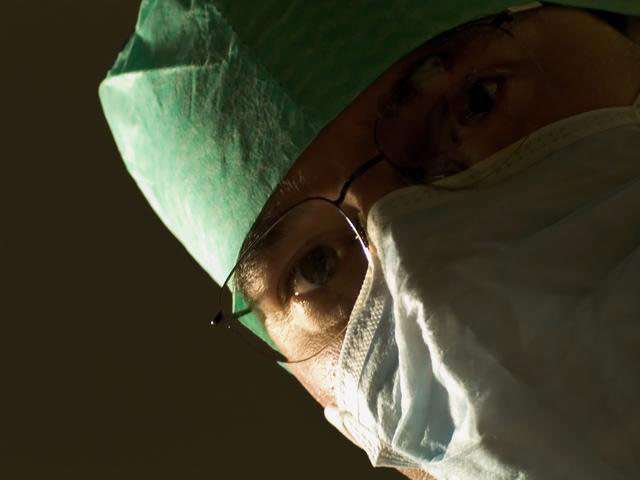Doctors Vote Less Than Farmers

Get the world’s most fascinating discoveries delivered straight to your inbox.
You are now subscribed
Your newsletter sign-up was successful
Want to add more newsletters?

Delivered Daily
Daily Newsletter
Sign up for the latest discoveries, groundbreaking research and fascinating breakthroughs that impact you and the wider world direct to your inbox.

Once a week
Life's Little Mysteries
Feed your curiosity with an exclusive mystery every week, solved with science and delivered direct to your inbox before it's seen anywhere else.

Once a week
How It Works
Sign up to our free science & technology newsletter for your weekly fix of fascinating articles, quick quizzes, amazing images, and more

Delivered daily
Space.com Newsletter
Breaking space news, the latest updates on rocket launches, skywatching events and more!

Once a month
Watch This Space
Sign up to our monthly entertainment newsletter to keep up with all our coverage of the latest sci-fi and space movies, tv shows, games and books.

Once a week
Night Sky This Week
Discover this week's must-see night sky events, moon phases, and stunning astrophotos. Sign up for our skywatching newsletter and explore the universe with us!
Join the club
Get full access to premium articles, exclusive features and a growing list of member rewards.
Lawyers get the gold star for heading to the polls while physicians are less likely to vote than teachers and farmers, finds a new study.
One out of four doctors reported not voting in the last presidential election. The finding could indicate a decline in activism among physicians, researchers said.
“Physician voter turnout rates in presidential elections are relatively unimpressive considering that physicians have much at stake personally and professionally,” said one of the study’s authors, Jennifer Lee of Johns Hopkins Medical School.
“If physicians remain silent, an important voice is lost in the political process,” Lee said.
The research will be presented this week at an annual meeting of the Society of Academic Emergency Medicine in Chicago.
Who votes
Lee and Melissa McCarthy, also of Johns Hopkins Medical School, compared voter turnout for a range of professions: physicians, registered nurses, lawyers, engineers, farmers and ranchers, elementary and secondary school teachers, secretaries and administrative assistants, waiters and waitresses, sales workers, drivers, and construction laborers.
Get the world’s most fascinating discoveries delivered straight to your inbox.
The data came from the November 1996, 2000 and 2004 Current Population Survey (CPS), a nationally representative survey conducted by the U.S. Census Bureau and the Bureau of Labor Statistics. More than 57 million voters were included in the study.
Without accounting for socioeconomic factors, such as education level and income, the survey showed that about one out of four physicians reported not voting in the most recent presidential elections.
Lawyers reported the highest voter turnout, with 85 percent of those surveyed voting in the most recent presidential election, while only 35 percent of laborers voted in that election, the lowest turnout of all occupations surveyed.
These findings were consistent with past research showing that socioeconomic factors impact whether a person votes. For instance, the current study revealed that individuals with an advanced academic degree were more than eight times more likely to report voting compared with those without a high-school degree.
When the scientists accounted for such demographics as income, education level and marital status, they found that lawyers, teachers and farmers were twice as likely as physicians to vote. And doctors were no better at voting than the remaining occupations.
Why not vote?
What keeps citizens from heading out to the polls? More than 20 percent of the non-voting farmers reported they didn’t vote because they were “not interested, felt my vote wouldn’t make a difference," and nearly 20 percent said it was because they “didn’t like the candidates or campaign issues.” About 40 percent of physicians and nurses reported not voting because they were “too busy” and had “conflicting work or school schedule.”
Physicians’ voting record could reflect a larger trend of political involvement. “We think we’re seeing a decline in political activism on the part of physicians,” Lee told LiveScience.
In addition to not having enough time, physicians could be less involved than teachers and farmers, for instance, in community groups and volunteer associations that tend to engage people in political involvement.
Membership in labor unions bumps up voter turnout. Unlike farmers and teachers who have well-organized unions or trade associations, physicians lack a comparable vehicle for electoral mobilization.
“In general we think there might be disenchantment or disengagement with the political process,” Lee said.
The disengagement could be a result of an overall decline in physicians’ professional stature and influence in the healthcare system. In the past, doctors stood on a “pedestal” of political legitimacy and medical admiration. But by the 1990s, the scientists say, public confidence in the medical profession plunged.
“Politicians who once deferred to physicians, now question them and even exclude them from important health care debates,” the scientists state in their research paper, which will be published in a May supplement of the journal Academic Emergency Medicine.
- Top 10 Ailing Presidents
- Survey Reveals Most Satisfying Jobs
- The Biggest Popular Myths
Jeanna Bryner is managing editor of Scientific American. Previously she was editor in chief of Live Science and, prior to that, an editor at Scholastic's Science World magazine. Bryner has an English degree from Salisbury University, a master's degree in biogeochemistry and environmental sciences from the University of Maryland and a graduate science journalism degree from New York University. She has worked as a biologist in Florida, where she monitored wetlands and did field surveys for endangered species, including the gorgeous Florida Scrub Jay. She also received an ocean sciences journalism fellowship from the Woods Hole Oceanographic Institution. She is a firm believer that science is for everyone and that just about everything can be viewed through the lens of science.
 Live Science Plus
Live Science Plus










